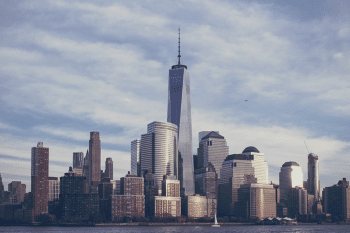20 years on: How 9/11 is still impacting people

It is almost two decades since the terrorist attacks on September 11 2001, and there is little doubt that the events of that day reshaped not just America’s future, but also had wide ranging ramifications worldwide.
Indeed the ripples set off by the various tragedies of 9/11 are still being felt to this day, and it is important to consider the nature of these ongoing issues in order to understand the significance of the fallout and also to help those affected by it.

Illness
Perhaps the most overlooked complication of 9/11 comes from the health dilemmas that resulted from it, specifically those arising from the collapse of the World Trade Center buildings.
Anyone who has seen the footage from the day will know that vast clouds of dust and particulates billowed from Ground Zero across Manhattan, and as well as coming in contact with first responders, these harmful substances also interacted with tens of thousands of people who were living and working on the island at the time.
A whole host of respiratory problems have arisen from this event as a result, as well as links being made to an uptick in the prevalence of various cancers amongst those involved. This is why 9/11 lawyers for WTC victims are still having to fight to make claims for clients who are suffering from illnesses associated with the attacks 20 years on, with the compensation fund providing support to those that need it most.
Economy
Aside from the human cost of the 9/11 attacks, there was a major financial burden associated with this series of incidents that has undoubtedly left its mark on the US economy, as well as wider global systems.
Estimating the true cost of the response to the attacks is difficult, although some experts put this figure at around $3.3 trillion, with around half of this spent on funding the military actions that were carried out in the aftermath.
This represents a vast volume of tax dollars being siphoned into the various armed forces, which might otherwise have been spent on a variety of projects. And given that America’s military had been shrunk during the 1990s following the conclusion of the Cold War, it is safe to assume that without 9/11, spending would have continued to be modest.
Such a vast sum being spent on recovering from and responding to 9/11 could easily have funded a vast array of projects, from universal healthcare to domestic infrastructural updates and beyond.
Culture
The cultural impact is an interesting and similarly tricky subject to pin down with any level of precision, and like the other ongoing elements of 9/11 there are entire books discussing the minutiae of this issue.
While in a sense it could be argued that the attacks helped to further solidify the US national identity, and the cultural response was and is as multifaceted as you might expect, there are others who would argue that it also served to define and deepen the cultural rifts, perhaps paving the way for the uncertainty and upset of the past four years.
No doubt there are other factors at play in this change; the internet is a bigger driver of cultural change and compartmentalization, for example. However, it is merely a conduit, whereas 9/11 is a cultural touchstone of a magnitude rarely seen.
Ultimately, the impact of 9/11 has become less obvious to plenty of people because it is so ubiquitous and normalized; integrated with the fabric of modern life, from extra security checks at airports to ongoing military intervention overseas. Whether this will remain true in another 20 years is a different matter.

